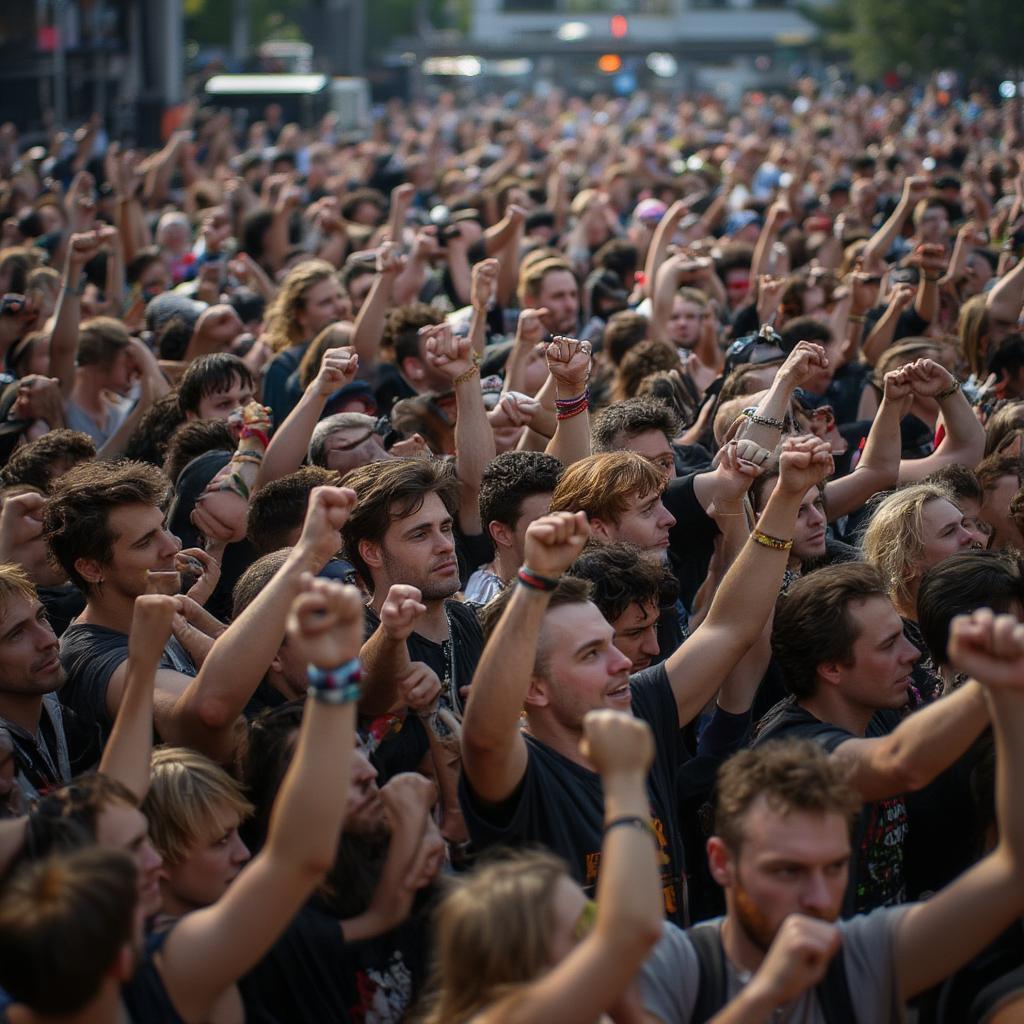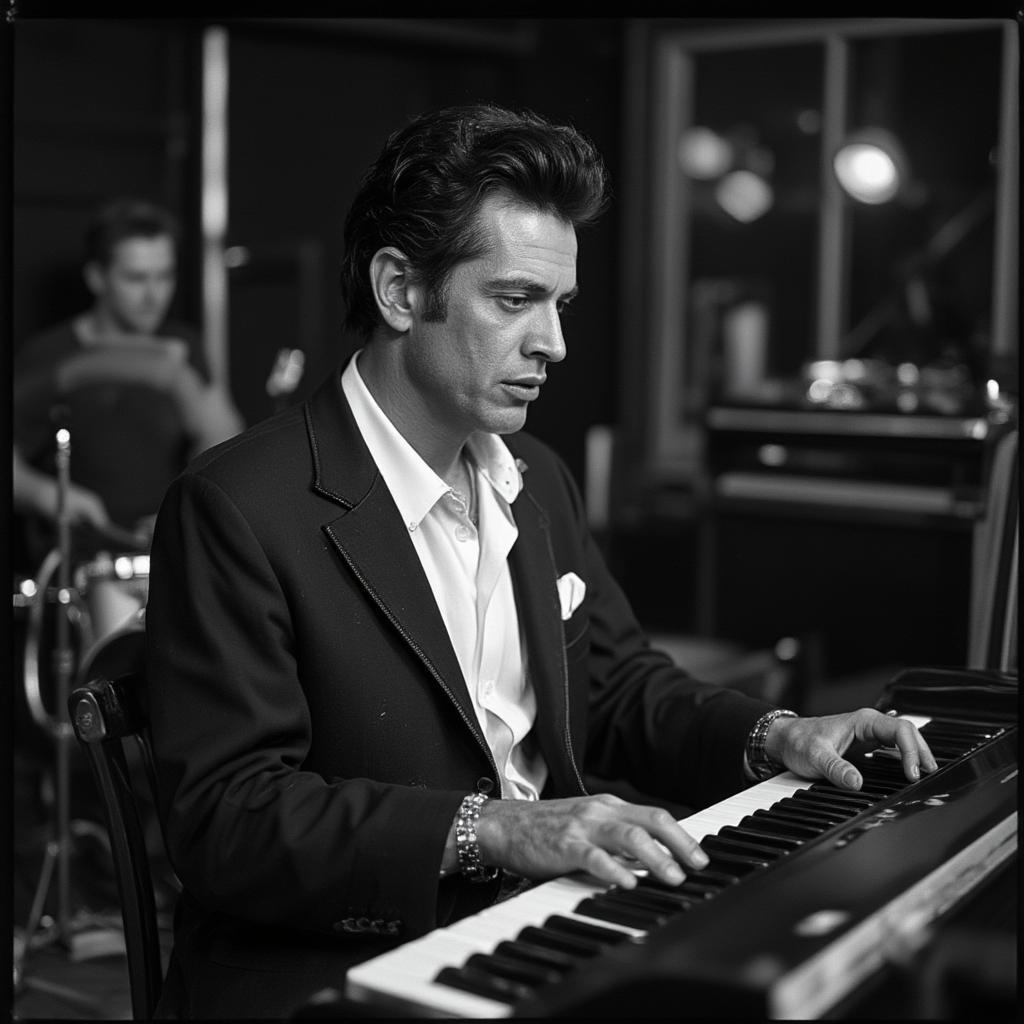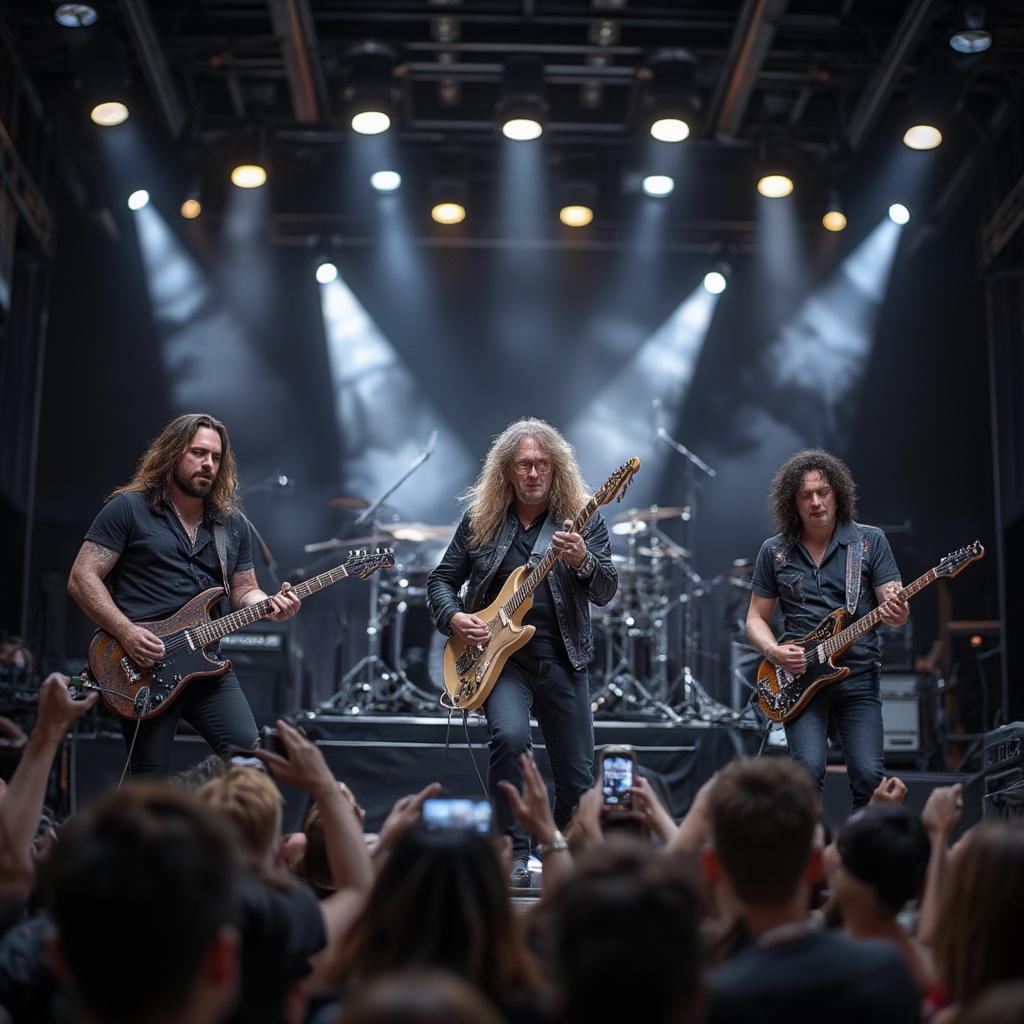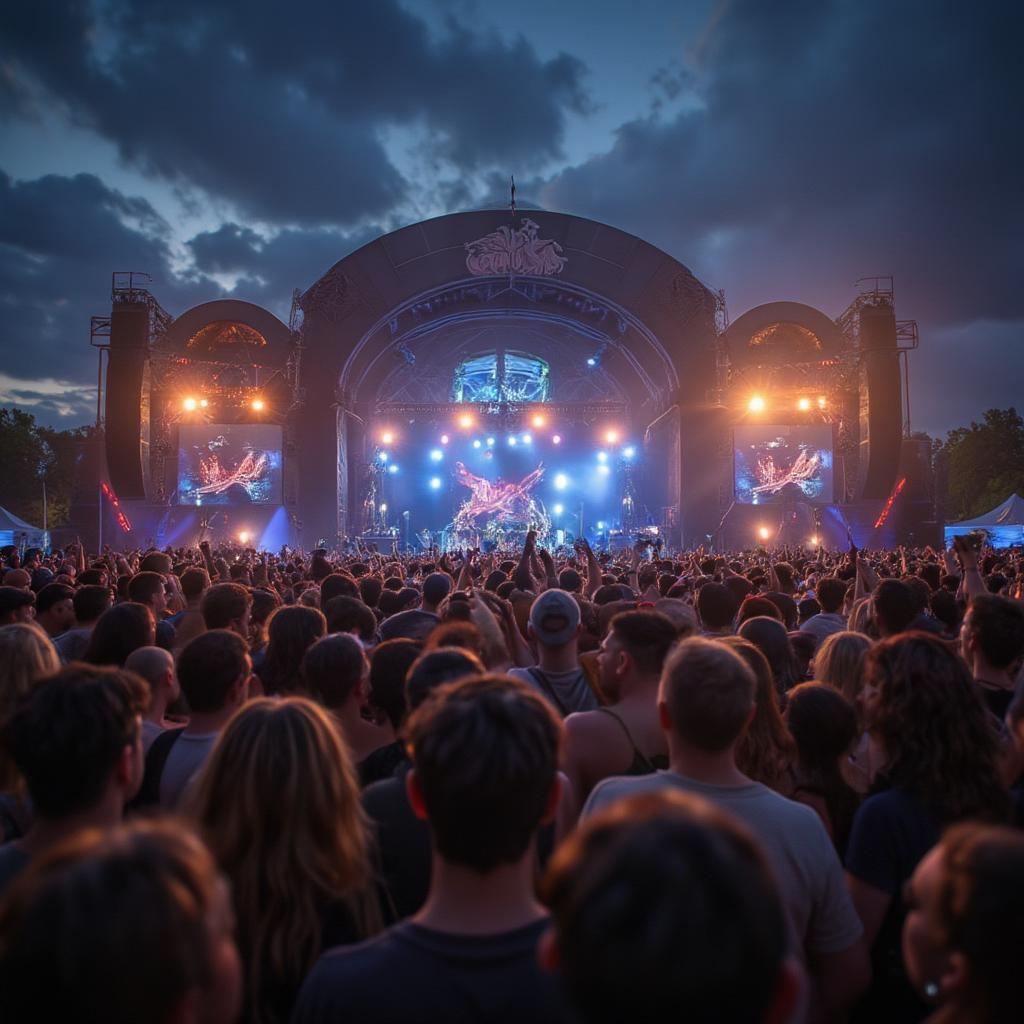Unearthing the Titans: A Deep Dive into the Best Punk Bands

Punk rock, a genre synonymous with rebellion, raw energy, and a DIY ethos, has spawned some of the most influential and iconic bands in music history. From the snarling anthems of the 70s to the diverse sounds of modern punk, this genre continues to resonate with generations seeking authentic and unapologetic expression. We’re here to explore the very Best Punk Bands, digging deep into their impact, their music, and their lasting legacy. This isn’t just about listing names; it’s about understanding what makes these bands truly stand out.
When you think of punk, what image comes to mind? Is it the safety pins and ripped clothing, or is it the potent three-chord riffs and rebellious lyrics? It’s probably a bit of both, right? The best punk bands aren’t just about aesthetics; they’re about pushing boundaries, questioning norms, and creating a community. Similar to [rock bands], punk is more than just music; it’s a cultural movement.
The Pioneers of Punk: Setting the Stage for Rebellion
The late 1970s saw the explosion of punk rock, a reaction against the perceived excesses of mainstream rock and the social unrest of the times. Bands like the Ramones, with their stripped-down sound and catchy hooks, are often credited with pioneering the genre. Their simple yet powerful approach laid the groundwork for countless bands to follow. Imagine the feeling of hearing “Blitzkrieg Bop” for the first time – pure, unadulterated energy!
Then there were the Sex Pistols, a band that embodied the chaotic and confrontational nature of punk. Johnny Rotten’s sneering vocals and the band’s provocative lyrics challenged the status quo and ignited a cultural firestorm. Their performance, although often controversial, was a pure expression of youth frustration. These pioneers created the template for what we now consider some of the best punk bands.
The Clash: Punk with a Conscience
While the Ramones and Sex Pistols offered raw energy and social critique, The Clash brought a level of musicality and social consciousness to the punk scene. Their diverse influences, from reggae to ska to rockabilly, created a unique sound that set them apart. The Clash’s lyrics tackled issues of racism, poverty, and political injustice, demonstrating that punk could be both rebellious and intellectually engaging. Their album “London Calling” is considered a landmark in the genre and a testament to their songwriting prowess. It was punk with depth, something that resonated even beyond the initial rebellious spark. For those who appreciate musical evolution, this band certainly sits high in the conversation about [i wanna rock and roll all night].
“Punk wasn’t just about screaming; it was about having something to say, something that mattered,” notes Dr. Evelyn Reed, a music historian specializing in punk rock from the University of Arts, London. “The Clash proved that punk could be both musically complex and politically charged.”
The Second Wave: Expanding the Punk Spectrum
The early 1980s saw the emergence of a second wave of punk bands that further diversified the genre. Hardcore punk, characterized by its faster tempos, more aggressive sound, and politically charged lyrics, arose in response to the perceived commercialization of the initial wave. Bands like Black Flag, Minor Threat, and Dead Kennedys pushed the limits of intensity and social commentary. These bands created a separate and equally important branch of punk, creating the kind of chaos only found in the best punk bands.
Post-Punk and Its Artistic Explorations
Alongside hardcore, post-punk emerged, exploring more experimental and atmospheric sounds. Bands like Joy Division, The Cure, and Siouxsie and the Banshees took the energy of punk and infused it with elements of art rock, gothic rock, and new wave. This led to a more introspective and atmospheric version of punk, expanding the genre’s boundaries. This shows that the core of [rock] is about evolution and experimentation, something these bands executed well.
Modern Punk: Keeping the Flame Alive
The spirit of punk continues to thrive in modern music. Bands like Green Day, Blink-182, and Rancid have brought punk to a wider audience, while still maintaining the genre’s rebellious core. These bands have introduced new generations to the power of punk, making it a vital and relevant part of the music landscape. They’ve proven punk’s enduring appeal and its capacity to evolve.
The Rise of Pop-Punk and Alternative Punk
Pop-punk bands like Blink-182 and Sum 41 blended punk with catchy melodies and pop sensibilities, creating a new subgenre that became incredibly popular. Alternative punk bands like Against Me! and The Distillers brought more emotional and personal elements into the mix, showing that punk could be about more than just anger and frustration. Both helped further cement punk in the broader public consciousness. These bands took the raw energy and added their own unique twists, demonstrating the genre’s versatility and ability to evolve. What do you think, is it the sound of a new generation of the [blue ridge rock festival] ?
Defining the “Best” Punk Bands
Ultimately, defining the “best” is subjective, but certain qualities stand out when considering the most influential punk bands: originality, impact, and their ability to resonate with audiences across generations. Do they have a unique sound? Do they challenge the status quo? Do their songs evoke a powerful emotional response? These are just some of the aspects that separate the good bands from the truly great ones.
Consider bands like Bad Religion, known for their intellectual and often provocative lyrics, or the Misfits, famous for their horror-inspired imagery and catchy anthems. These bands, while different in their approach, have all had a significant impact on the genre and have contributed to the rich tapestry of punk rock. They brought their own flavor to the punk recipe and showed how diverse and unique the genre can be.
The Underrated and Hidden Gems of Punk
It’s also important to recognize the countless underrated and lesser-known bands that have made significant contributions to punk. From the DIY ethos of the underground scene to the regional variations of the genre, there are so many bands who deserve recognition for their passion and creativity. It’s essential to look beyond the mainstream and dig into the vast world of punk rock to discover the hidden gems that often resonate the most deeply. You might even find your new favorite band lurking in some overlooked corner. Finding and appreciating these hidden gems can be like finding a unique [rock t shirts] in a crowded vintage shop – something that really makes you feel cool.
“Punk isn’t just about the big names; it’s about the local scenes, the independent bands, the DIY ethic,” explains Alex Johnson, founder of the ‘Punk Is Not Dead’ community blog. “These are the bands that keep the spirit of punk alive in their own unique ways.”

The Enduring Legacy of Punk
Punk rock’s influence on music, fashion, and culture is undeniable. It’s a genre that has always been about challenging norms, questioning authority, and expressing oneself authentically. The best punk bands have not only created some of the most iconic and influential music but have also inspired countless individuals to embrace their own unique identities. The raw energy and defiant spirit of punk continue to resonate with those who seek a different path. It’s about rebellion, but also about community, creativity, and staying true to yourself.
Whether you’re a long-time punk fan or just starting your journey into the genre, there’s a band out there that will resonate with you. From the raw aggression of the pioneers to the more diverse and complex sounds of modern punk, the genre has something for everyone. Take some time to explore the different bands and find your own personal favorites. You’ll be surprised at the depth and diversity that the best punk bands have to offer. So turn up the volume, embrace the chaos, and let the spirit of punk rock ignite you.
Conclusion: The Sound of Rebellion Continues
The journey through the world of the best punk bands is a journey into the heart of rebellion, creativity, and raw energy. From the pioneers who laid the foundation to the modern bands who continue to push the genre’s boundaries, punk rock has left an indelible mark on music history. It’s a genre that will continue to evolve and inspire for generations to come. Now, tell us, which are some of your favorite punk bands?
FAQ About Best Punk Bands
1. What are the key characteristics that define a punk band?
Punk bands are typically characterized by their raw energy, simple song structures, fast tempos, and rebellious lyrics. They often have a DIY ethic and a confrontational attitude. Their sound typically involves distorted guitars, aggressive drumming, and snarling vocals.
2. Who are some of the most influential bands that are always cited when discussing the best punk bands?
The Ramones, the Sex Pistols, and The Clash are often considered the most influential pioneers of punk rock. These bands defined the genre’s sound, image, and attitude.
3. What is the difference between hardcore punk and post-punk?
Hardcore punk is characterized by its faster tempos, more aggressive sound, and politically charged lyrics, while post-punk explores more experimental and atmospheric sounds, incorporating elements of art rock, gothic rock, and new wave.
4. How has punk rock influenced modern music?
Punk rock’s influence can be heard in many genres including alternative rock, pop-punk, emo, and even some aspects of hip-hop. Its DIY spirit and rebellious attitude continue to inspire artists across the spectrum.
5. Are there any contemporary bands carrying on the traditions of punk rock?
Yes, there are many contemporary punk bands that are keeping the genre alive while bringing their own unique style and innovation. Bands such as Idles, Amyl and the Sniffers, and PUP, are creating some of today’s most exciting music.
6. Where can I start if I am new to punk music?
Starting with the pioneers is always a good idea. Listen to albums such as “Ramones,” “Never Mind the Bollocks, Here’s the Sex Pistols,” and “London Calling.” Then explore the different subgenres to find your own favorites.
7. Why is punk rock still relevant today?
Punk’s message of rebellion, social commentary, and authenticity continues to resonate with people who feel marginalized or disenfranchised. It’s a genre that encourages self-expression and challenging the status quo.




